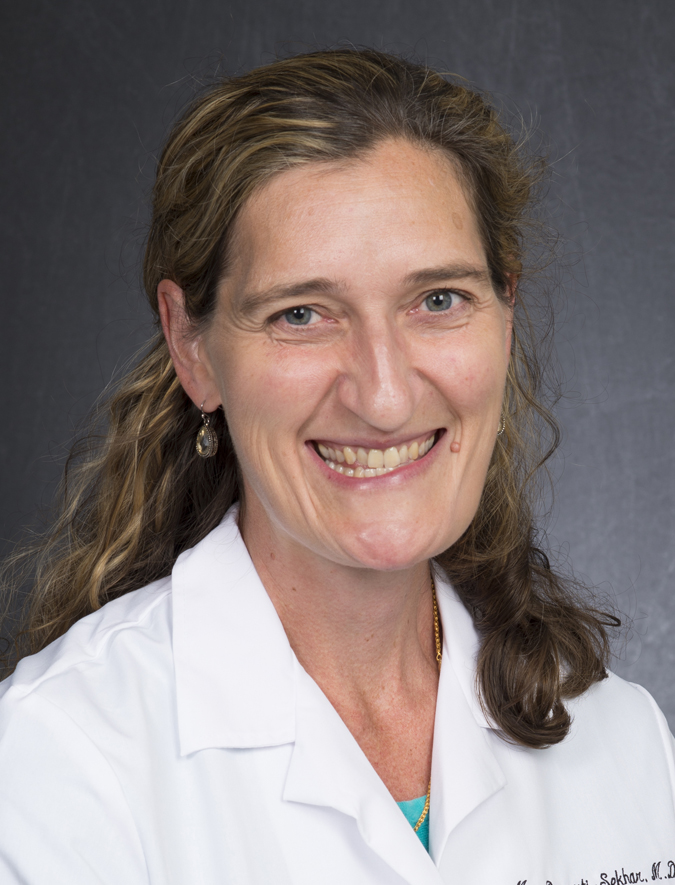COVID-19: When Do I Need to Quarantine? When Should I Isolate?
November 8, 2020
Categories: Community, Health & Wellness
 By Mary Barsanti-Sekhar, MD, Internal Medicine and Pediatrics
By Mary Barsanti-Sekhar, MD, Internal Medicine and Pediatrics
The COVID-19 pandemic has created many challenges for us all. With the shutdown in March 2020, we significantly altered our lifestyle to create a safer environment for ourselves and our families.
When reading and listening to information regarding this virus from government officials and medical personnel, it is important to be familiar with frequently used words such as “quarantine” and “isolate.”
These words are sometimes used interchangeably but it is important to know the difference.
Quarantine: The term used to keep someone who might have been exposed to COVID-19 away from others. Quarantining yourself helps prevent the spread of the disease before you know you are sick or if you are infected with the virus but don’t have symptoms.
Isolate: The term used to separate people who have tested positive for the COVID-19 virus from people who are not infected. If you have tested positive, you may also have to isolate from others within your household.
Who needs to Quarantine?
If a person is in a close contact to someone who currently has COVID-19, the recommendation is to quarantine at home for 14 days from the date of last contact. In particular, you should avoid contact with any high-risk individual during this time.
To help determine if you need to quarantine, it is important to understand what close contact means.
Close contact typically means:
- You’ve been within six feet of someone who has COVID-19 for at least 15 minutes (cumulative time spent, not just 15 minutes at one time).
- You had direct physical contact with that person (touched, hugged or kissed them).
- They sneezed, coughed or somehow got respiratory droplets on you.
- You shared eating or drinking utensils with them.
Most people in quarantine will not develop COVID-19. However, many people with this infection are asymptomatic. Not quarantining could lead to the spread of the disease very quickly, so staying home is essential.
When you are in quarantine, it is important to monitor your health. Things to watch for include:
- Fever (100.4◦F)
- Cough
- Shortness of breath
- Other common COVID-19 symptoms
If you develop symptoms, please contact your physician’s office to discuss. Loyola Medicine offers different ways to see our primary care physicians, including in-person and telehealth appointments.
Who needs to Isolate?
If you have symptoms that are suspicious for COVID-19 or test positive for the virus, it is recommended that you isolate for 10 days even if you do not have any symptoms or only mild symptoms.
Isolating means:
- Staying home for a minimum of 10 days.
- Separating yourself in a specific "sick room" or area within your home, away from others members of your household not isolating.
- Using a separate bathroom if possible.
- Avoiding contact with other members of your household (including pets) as much as possible.
- Wearing a face covering whenever you must be around other people.
- Not sharing personal items like cups, towels and utensils.
It is recommended to stay home at all times when you are in isolation unless you need to seek medical care. Be sure to continue to monitor symptoms and if you develop shortness of breath or chest pain, please seek emergency care.
When should Isolation end?
The CDC offers the following recommendations about when you can end your isolation:
- If you think or know you had COVID-19 and had symptoms, you can typically be with others after three days with no fever, your respiratory symptoms have significantly improved and it’s been at least 10 days since your symptoms first appeared.
- If you tested positive for COVID-19 but had no symptoms, you can be with others (as long as you continue to show no symptoms) after 10 days have passed since your positive test.
Prevention is vital to decreasing the spread of COVID-19 infections. Please do your part and remember these key tips to prevent spreading the virus:
- Practicing physical distancing a minimum of six feet from others.
- Avoid large indoor group gatherings.
- Continuing waring a face covering whenever you are around others.
- If you do have close contact with someone who has COVID-19, stay home for at least 14 days in quarantine.
Following quarantine and isolation rules is not always the easiest thing to do, but it is the best way to slow the spread and bring us all back together when it is safe.
Schedule Your COVID-19 Vaccine Appointment Today
Existing Patients New Patients
Mary Barsanti-Sekhar, MD, is an internal medicine and pediatrics physician at Loyola Medicine. Her clinical interests include annual wellness visits, men's health, telehealth, well-child visits and women's health.
Dr. Barsanti-Sekhar earned her medical degree at Saint Louis University School of Medicine. She completed a residency in internal medicine and pediatrics at Rush University Medical Center and a fellowship in infectious disease at Washington University in St. Louis.
Book an appointment today to see Dr. Barsanti-Sekhahr or another Loyola specialist by self-scheduling an in-person or virtual appointment using myLoyola.
